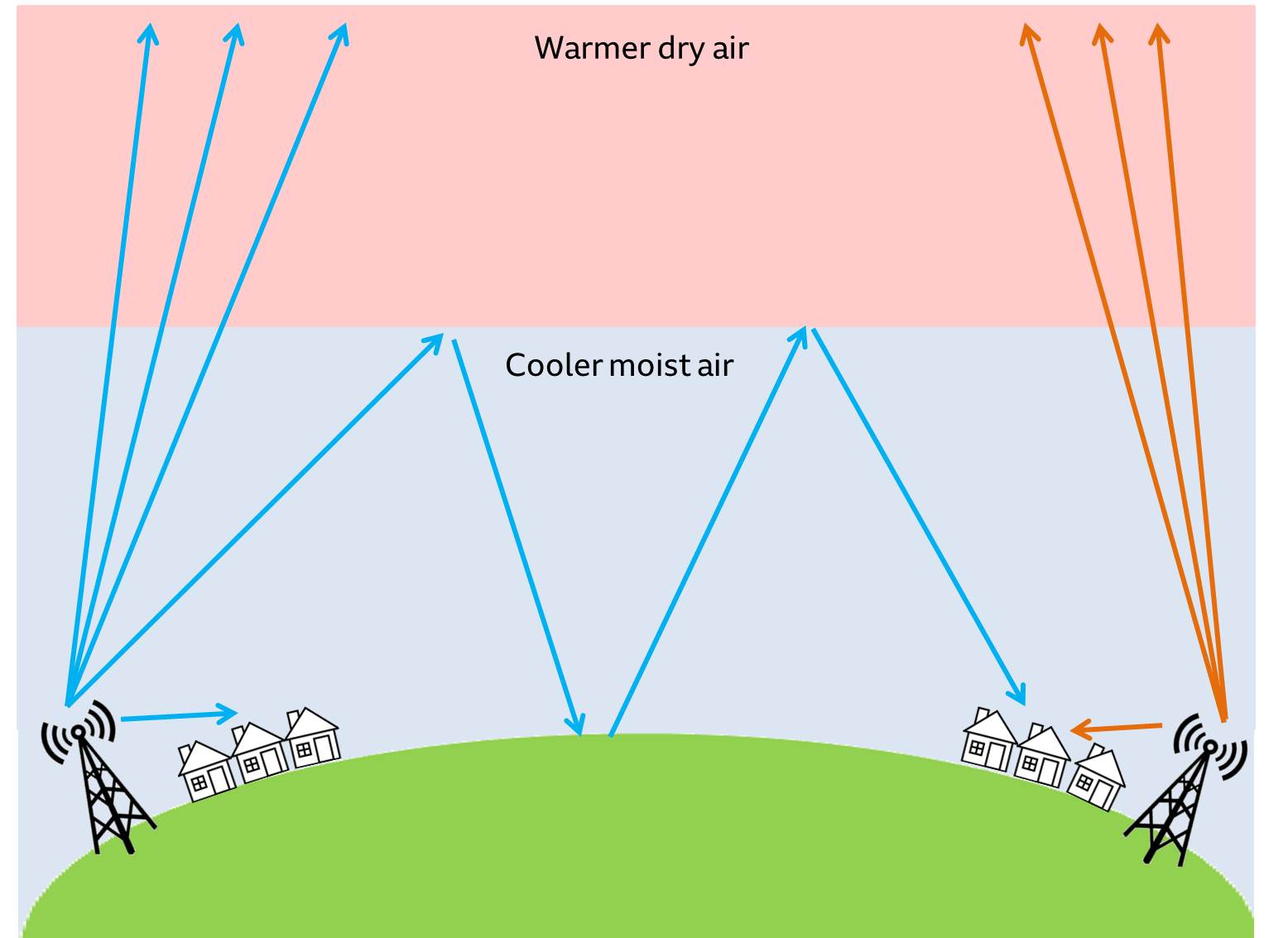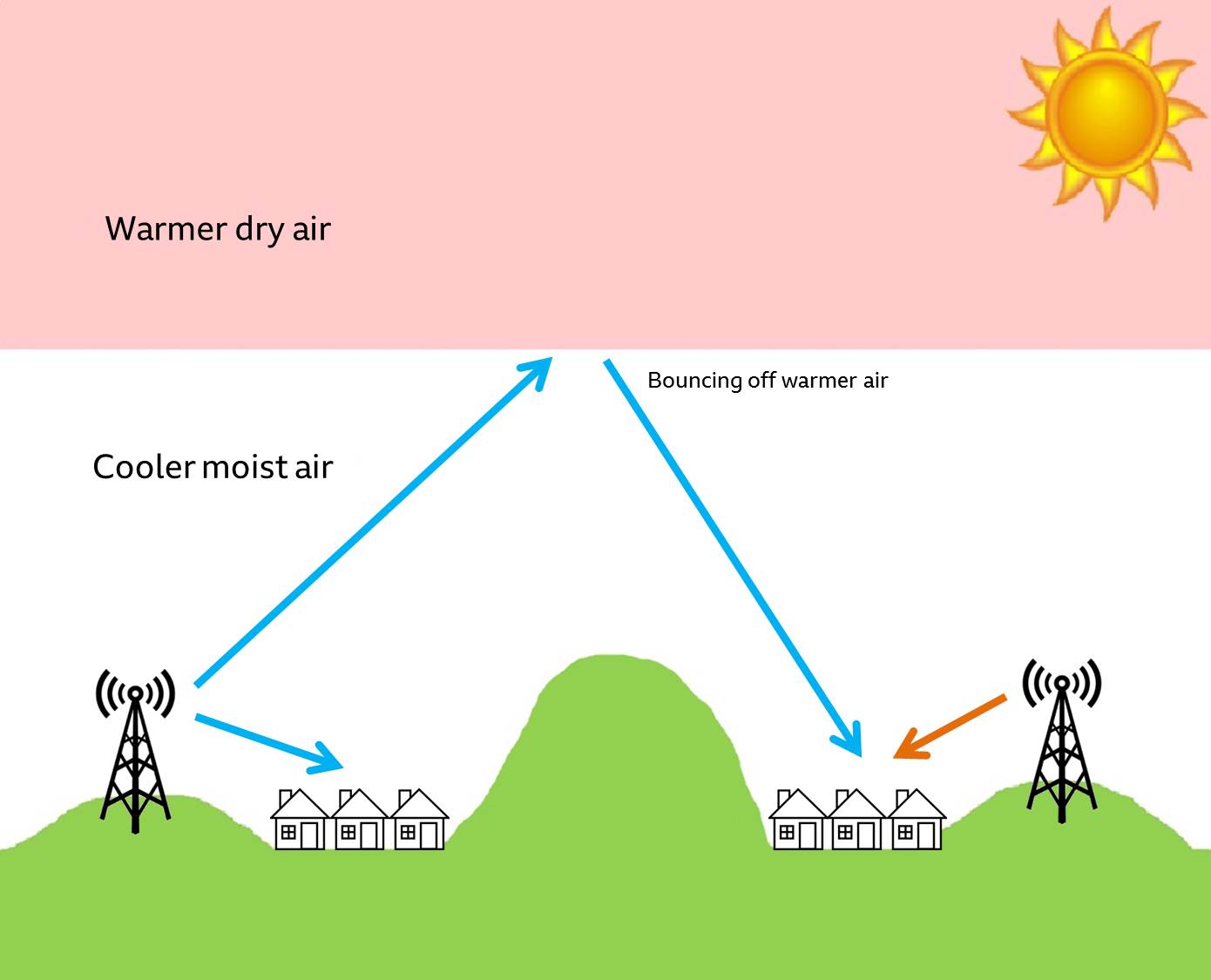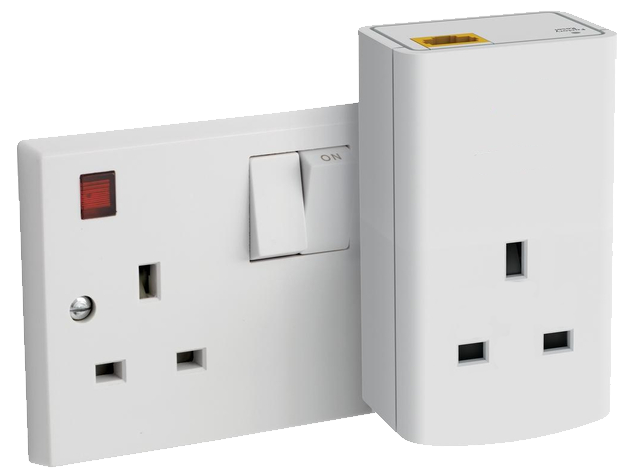When a television signal is broadcast from a transmitter, some of it disappears upwards into space and is lost. However, during certain weather conditions, the “lost” signal can become bent back towards earth and received much further away than normal. The lost signal can potentially travel great distances, up to many hundreds of miles.
This is known as tropospheric ducting and can distort or prevent reception on television.
What causes Tropospheric Ducting?
Normally, the higher you go into the atmosphere, the colder it is. However, high pressure can cause a temperature inversion. This is where a layer of air in the troposphere will be at a higher temperature than the layers of air above and below it. This creates a duct which radio waves can travel along.

When does it happen
Tropospheric ducting of television signals is relatively common during summer months and especially during evenings in periods of stable and fine weather. It tends to happen when we have very hot days followed by rapid cooling at night. This is why it is common near the coast.
When we are aware of this happening, we will put up a news item on Works and Warnings page the BBC Reception Advice website.
What impacts does it have?
As the signals can travel further afield it can become possible to receive services you can’t normally get. For Freeview, your aerial can pick up signals from distant transmitters as well those from your local one. If they are on the same frequency, it can cause co-channel interference. This will cause temporary picture break-up (pixilation). These additional signals can sometimes cause problems with relay transmitters in our network.
How long does it last?
This is hard to estimate as there are many variables that cause tropospheric ducting. It often appears at the same time on consecutive days and then can disappear for several months at a time.
What should you do?
At these times, there is nothing you can do but wait until the weather changes. You should not re-tune your television when this happens. If you have re-tuned we recommend doing a manual re-tune to the transmitter your aerial is pointing towards. We have a guide to help you manually retune.

